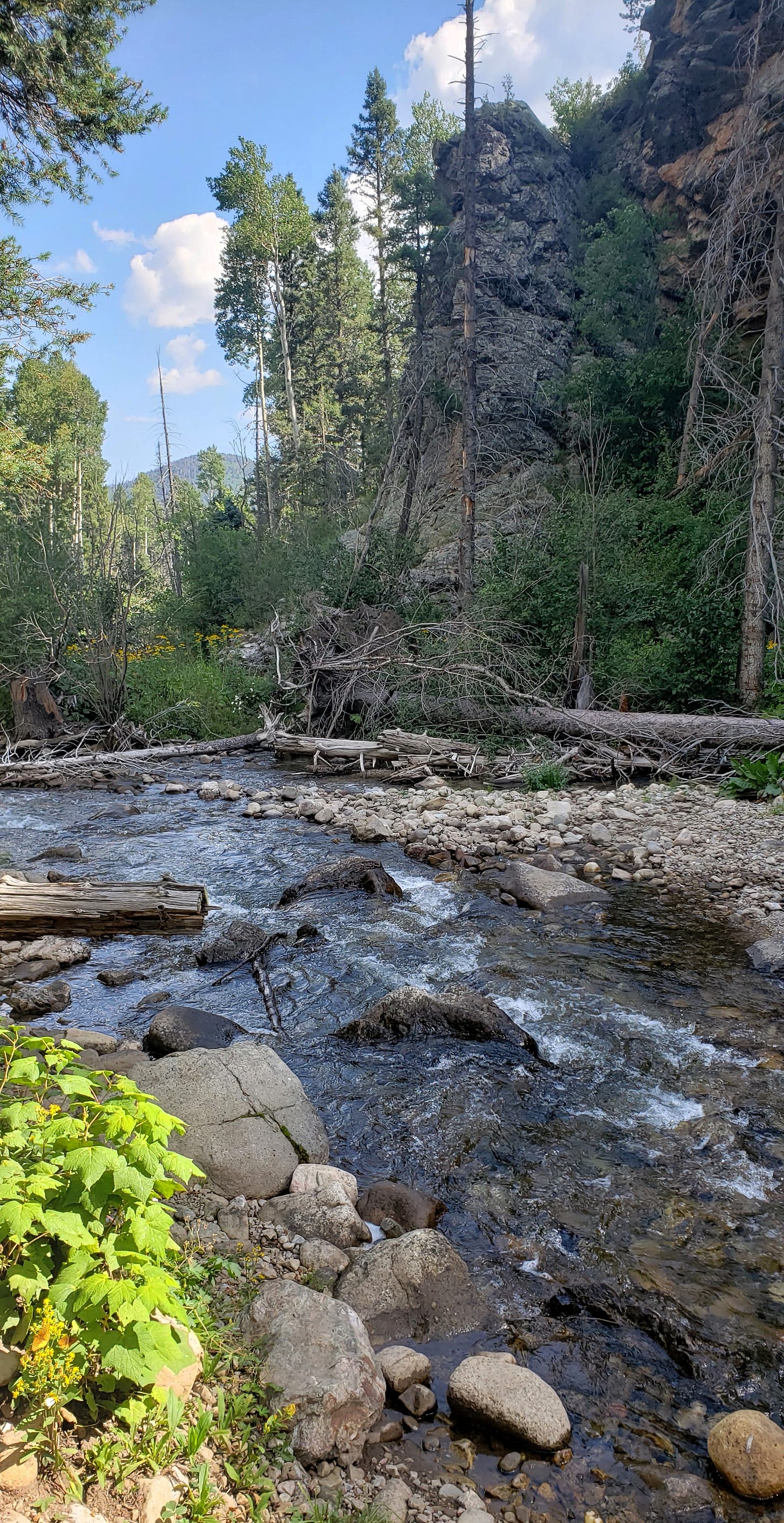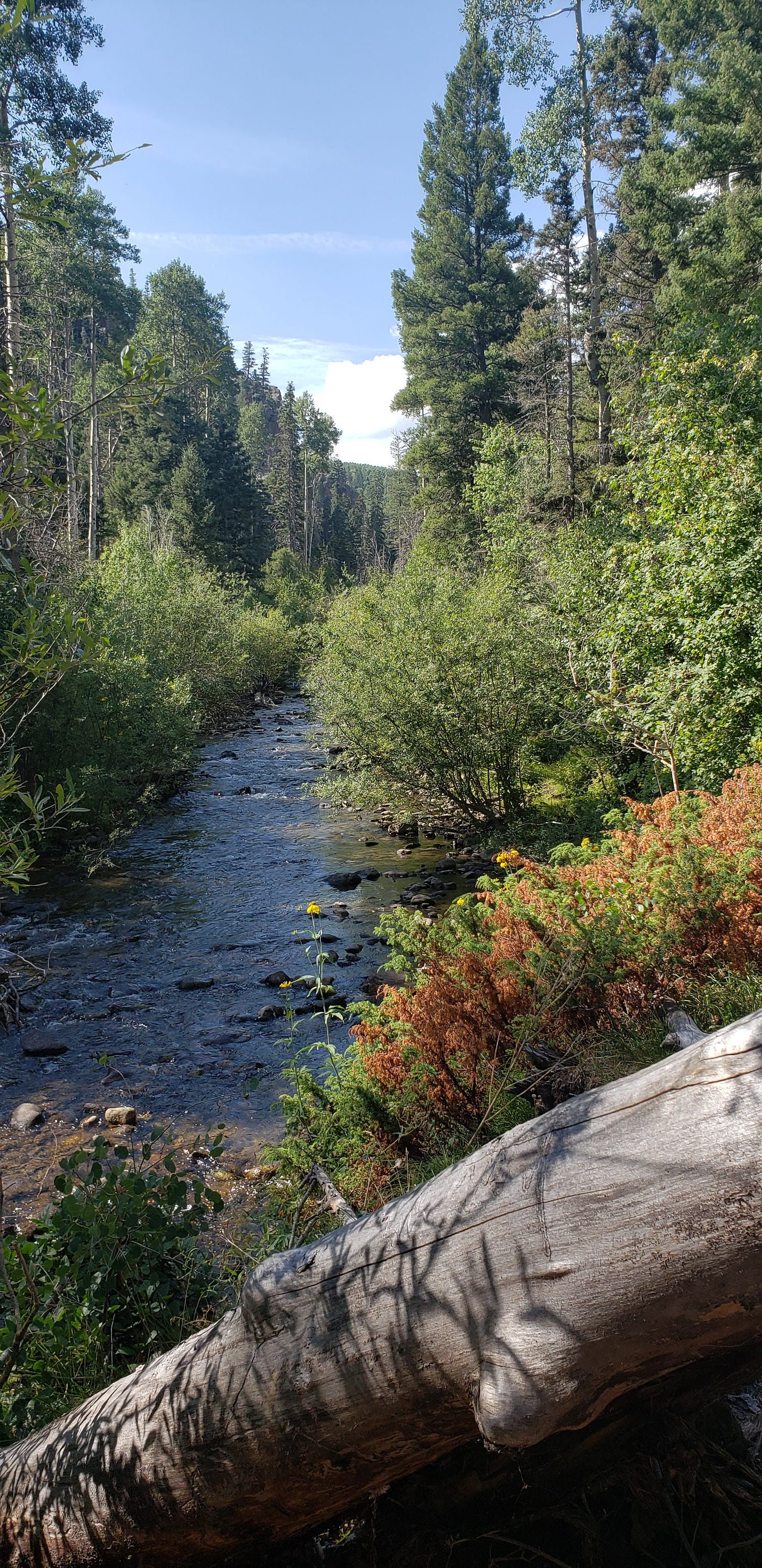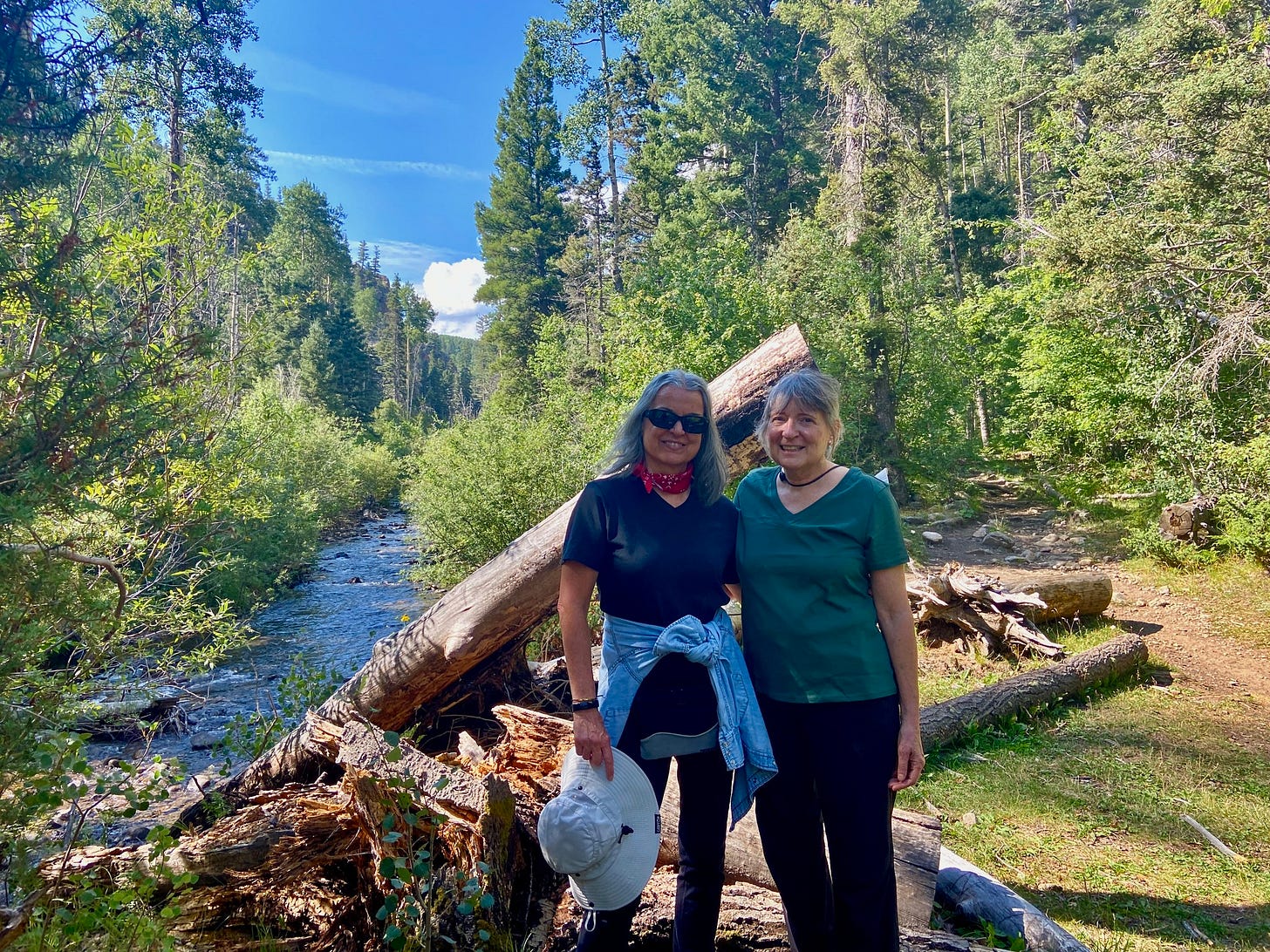Take A Hike!
Why is this an insult?
Climb every mountain,
Search high and low,
Follow every byway,
Every path you know.
Climb every mountain,
Ford every stream,
Follow every rainbow,
'Till you find your dream.-Sound of Music
I love hiking, so I was curious why the expression “take a hike” is used to signify annoyance or anger. It’s another way of saying “get the hell out of here.” Why?
I did some digging and found too many theories to count. No matter its true history, the gist is this:
"Regardless of its origins, “take a hike” remains an idiomatic expression that is widely recognized today. While it can still be used in a dismissive or rude manner, it can also be used playfully among friends—or even as an invitation to enjoy nature and get some exercise." (CrossIdiomas.com)
Personally, I like the latter interpretation much better.
This came to mind because I had the most perfect hike last week with a good friend and her husband. He’s an avid hiker and chose one of my favorite trails: the West Fork Trail, Rio Santa Barbara, in Northern New Mexico.
We had a glorious day—hiking in the morning, then enjoying a picnic beside the stream. We talked, laughed, and soaked in the mountain air. Just as nourishing, though, were the quiet moments—listening to the rushing water, noticing the way sunlight filtered through the trees, feeling small in the best possible way.
Being in nature is more than “exercise” for me. It’s medicine after a stressful week.
A few days later, while recounting the hike over coffee with a friend, a woman at the next table leaned over and said:
"So lucky for you that you’re young enough to hike. I wish I could, but I’m far too old."
The thing is—she looked younger than me! She didn’t appear to be in great shape, but I was taken aback. I didn’t know what to say. I certainly wasn’t going to lecture a stranger. But it made me sad. Had she simply given up? Had she ever tried? Could she start, even slowly, with her doctor’s guidance?
Hiking steep mountain trails is one thing, but walking short distances on flat ground is another. Movement is movement. And movement is life.
I keep wondering: how would you have responded to her? Would you have encouraged her—or simply smiled politely, as I did?
This little exchange got me thinking about the bigger picture: how do we keep hiking—or even just walking—throughout our lives? How do we balance the benefits of staying active with the reality of changing bodies?
Research is clear: staying active is one of the best things we can do for our physical and mental health as we age. Hiking and walking improve cardiovascular health, strengthen muscles and bones, sharpen balance, and reduce stress. One study even found that people who begin walking regularly in their 70s see improvements in balance, strength, and mood within weeks.
But equally important is knowing our limits. That might mean shorter hikes, flatter trails, trekking poles for stability, or simply taking more rest breaks. It means respecting injuries and medical conditions while still seeking ways to move.
The key is consistency, not intensity.
I’m certainly no authority, but I did look at what experts recommend for staying safe and comfortable on the trail as we get older. Their advice can be summed up simply:
Start small and build gradually. Begin with short, flat walks and slowly add distance or elevation.
Prioritize good shoes. Supportive, well-fitted footwear can prevent pain and injury.
Use trekking poles. They reduce strain on knees and improve balance.
Stay hydrated and fueled. Bring water and light snacks, even for shorter hikes.
Know your limits. Pay attention to breathing, balance, and fatigue—stop before you overdo it.
Check in with your doctor. Especially if you’re starting from a sedentary lifestyle or have health concerns.
Of course, some people truly can’t hike or walk far because of health conditions, and that reality deserves respect. But for many, the barrier isn’t ability so much as belief.
I stumble, trip (those rocks are killers), and sometimes cut hikes short. But I do know this: the times I get outside—even for a short walk—are the times I feel most alive.
If you’ve ever thought hiking was out of reach for you, maybe reframe what “hiking” means. A neighborhood stroll, a walk through a park, or a slow meander along a flat trail—all of it counts. All of it matters.
The important thing is to start where you are.
I’d love to hear your thoughts:
Do you hike or walk regularly?
Have you adjusted how you move as you’ve gotten older?
What are your biggest worries or limits when it comes to staying active?
And if someone told you they were “too old to hike,” what would you say?
Do you imagine yourself hiking—or at least walking—in your 70s or 80s? What would help make that possible?
Because while “take a hike” can mean “get lost,” I prefer to think of it as an open invitation. A call to step outside, breathe deeply, and remember what our bodies—and our spirits—can still do.
Thank you for reading—I can’t wait to hear your perspectives. Your stories and reflections always remind me that we’re figuring this out together, one step (or hike) at a time.
Much love!
Thanks for stopping by Leaving Middle Age! If you found this interesting, please share it with friends, family, or anyone who’d appreciate the journey.





This got me thinking about the many ways we can be in relationship to our body and movement - particularly for those who find it more challenging to move - our imaginations are a powerful way to have an experience that supports our well-being.
So, if someone can’t hike, perhaps they can imagine, close their eyes and invite the scents, sounds, and sensations.
In this particular instance with the stranger, perhaps responding with a question of curiosity, “what do you enjoy most about hikes?”
That alone can create space around the belief that it’s not available and invite a remembering of what a hike can be and either inspire (so they can find a form of hiking or movement, like you mentioned, that works for them) or they can just sit with the energy of the hike and that alone can go miles (accidental wordplay there!).
All to say, as our bodies become less able no matter the reason we always have our imaginations to rely on when it really just isn’t physically possible to do the thing we want to do!
And beyond that, our imaginations support real change, shift our beliefs, nudge us forward… and now I’m thinking about all of the different contexts where this applies and now I’m like, gosh, I might have a whole post in me on the power of imagination, haha, thanks, Diane!
Hmmm..."Great" minds think alike!!! This article was published today!!! Another take...same title.
https://www.nytimes.com/2025/08/23/opinion/hike-camp-cathedral-wilderness.html?unlocked_article_code=1.gU8.9wJZ.Vd27wG9bC7iF&smid=nytcore-android-share